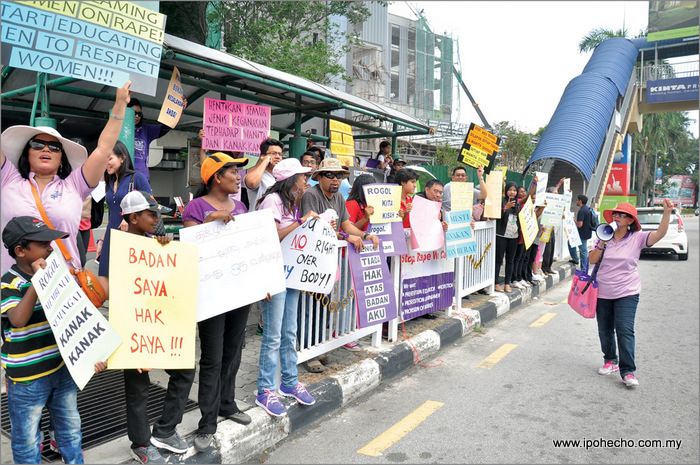From Pillar to Post


By Fathol Zaman Bukhari
Although a police permit is no longer required, the organiser must notify the officer in charge of a police district (OCPD) at least 10 days before the gathering date…
Ever wonder how one feels when being sent from pillar to post? That was how a member of a women’s non-governmental organisation was treated when she sought permission from the authorities to organise a rally in the city recently.
An act of parliament was passed in 2012 to allow for peaceful assembly by the people to voice their dissent or to vent their dissatisfaction. The issue can be as mundane as inaction by a certain government agency or indifference over matters of public interest. The fact that a law has been enacted enabling Malaysians to “take to the streets” meant that “an assembly of five of more people is considered unlawful” as stipulated in Section 27 of the Police Act is no longer relevant.
The passing of the Peaceful Assembly Act 2012 (Akta Perhimpunan Aman 2012) is designed to regulate public protests in the country. The Act was drafted following the Bersih 2.0 rally and after the Government announced its intention to amend the Police Act. It was tabled in Parliament on November 22, 2011, passed by the Lower House on November 29, approved by the Senate on December 20 and became law on April 23, 2012. That was how efficient the process was but the Act has since been criticised by many as being a bit “undemocratic”.
The Act prohibits those below the age of 15 from being a participant. It too bars a gathering within 50 metres of “prohibited places” such as hospitals, petrol stations, airports, railway stations, places of worship and schools. Those who fail to comply with the restrictions, upon conviction, can be fined up to RM10,000. All forms of street protest, however, are disallowed.
Although a police permit is no longer required, the organiser must notify the officer in charge of a police district (OCPD) at least 10 days before the gathering date. The OCPD will respond to the notification within five days outlining the restrictions imposed. The organiser may appeal to the Minister of Home Affairs if he or she is dissatisfied with the conditions and the minister must respond within two days from the date of application.
That sounds good on paper but try getting things done on the ground and you will sense the futility of it all.
The good lady submitted her society’s application for an innocuous rally to denounce rape on women and girls a month before the designated date. But having received no response from the police she decided to be a little vocal. That was the beginning of her problem. An application to Ipoh City Council for use of the open space in front of the railway station was stonewalled for some inexplicable reasons. The council feared unfettered access would “cause grave damage to public property”.
Her application to the police was not making much headway. An alternative site was suggested – in front of Ipoh Parade. She was politely told by the police to refrain from using the area around the shopping mall as it would disrupt traffic. The road in front of Sam Tet School, Ipoh is always clogged up, come rain or shine. It was definitely a lame excuse.
Having no other recourse, the lady proceeded with her gathering on Saturday, August 23 at 3pm. And the rest is history.
No untoward incidents happened. Motorists hooted giving their approval to the ladies’ assertion that “Rape is not sex but a crime”. The only policing activities seen were a patrol car stopping by probably out of curiosity and an overzealous traffic cop issuing tickets to cars parked alongside the road.
Will the authorities ever learn? If we aspire to be a First World country we have to begin by respecting people’s rights to dissent.


